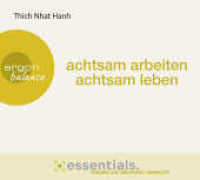Full Description
This book provides an overview of research and best practices associated with heritage tourism, with a particular focus on Vietnam, in conversation with heritage tourism in other Asian contexts. These include Iran in the Middle East, Sri Lanka in South Asia, Japan and China in East Asia, Thailand in Southeast Asia, and Brunei and the Philippines in the South Pacific. By delving into crucial questions and challenges relating to cultural innovation, preservation, and authenticity, it offers key lessons for policy-making and theorisation which not only contribute to understanding and improving heritage tourism in Vietnam, specifically, and in Asia more broadly, but also inform efforts to preserve and regenerate both natural and cultural heritage on a global scale. It is relevant to researchers and student communities working within areas of heritage, sustainability, tourism, geography, and in Asian studies.
Contents
Heritage tourism in contemporary Asia: A review and research agenda.- A bibliometric analysis of tourism research on authenticity: A focus on cultural heritage tourism.- Preserving and promoting cultural heritage: Narrative inquiry from the young generation in Vietnam.- Networks for sustainable cultural heritage tourism: A case study of Hue, Vietnam.- Tourist satisfaction with heritage sites in Vietnam.- Heritagisation of colonial buildings in Ho Chi Minh City.- The influence of music video on domestic tourists' heritage destination brand attachment.- Heritagisation, digitalisation and community involvement: The case of Phong Nha - Ke Bang National Park, Vietnam.- Bridging language, culture, and heritage: The VietABLL project's transformative approach to language education.- Singing in the South - An ethnography of domestic tourism in Vietnam.- The neocolonial expression of intangible heritage: A multiperspective analysis of the Michelin guide for Vietnam.- The COVID-19 pandemic and the opportunity of heritage tourism in Kampong Ayer (Water Village), Brunei Darussalam.








